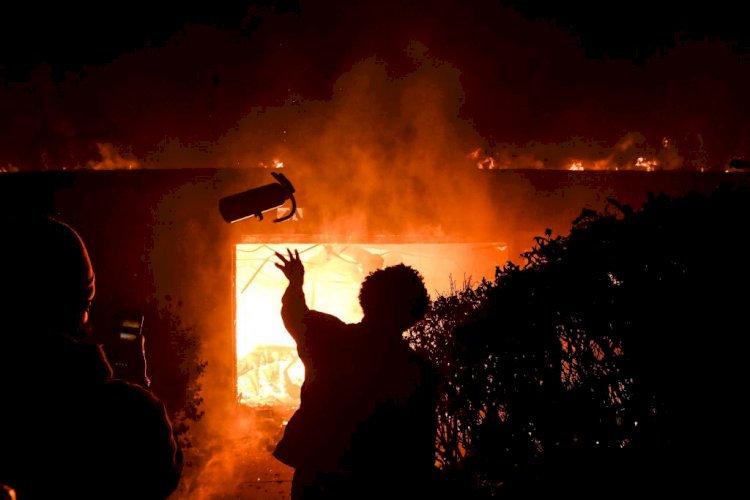Minnesota governor says destruction is no longer about George Floyd and he'll mobilize full National Guard
Every person arrested Friday night in St. Paul was from out of state, Mayor Melvin Carter said

Minnesota's governor said Saturday he will move to "fully mobilize the National Guard" after destructive Minneapolis-area protests that he says are "no longer in any way about the murder of George Floyd."
"Last night (was) a mockery of pretending this about George Floyd's death or inequities," Gov. Tim Walz said in a news conference. He asserted unrest has become about outsiders -- largely not Minnesotans -- "attacking civil society (and) instilling fear and disrupting our great cities."
Walz's comments came the day after a breathtaking night of protests, fires and riots in cities across the country, sparked in part by Monday's death of Floyd, an unarmed and handcuffed 46-year-old black man, while in Minneapolis police custody.
Walz and the mayors of Minneapolis and St. Paul said vandals are largely nonresidents of the cities with no interest in Floyd's death. The state's "communities of color ... were out fighting hand in hand," he said, to try to save businesses, some that took generations to build, that were under attack.
"Nothing we do to provide justice" for Floyd "matter(s) to any of these people who are out here firing upon the National Guard, burning" businesses and "disrupting civil life," Walz said.
Every person arrested Friday night in St. Paul was from out of state, Mayor Melvin Carter said.
"We will not accept George Floyd's death. We will not accept the destruction of our communities, either," Carter said.
READ ALSO:
George Floyd: Protesters set Minneapolis Police Station Ablaze

Assertions about outside agitators come partly from data about who has been arrested, as well as information from fliers and online postings, state public safety commissioner John Harrington said. He said he hopes to release supporting information later Saturday.
Walz said he understands that "Minnesotans' ... inability to deal with inequality" and racism catalyzed the protests -- but he said rough estimates indicate only 20% of protesters there are Minnesotans.
Anger boiled over Friday in more than 30 cities, with some protesters smashing windows, setting vehicles ablaze, blocking traffic on highways and clashing with police.
In Minneapolis, where an officer seen on video with his knee on Floyd's neck was arrested Friday, some protesters knelt under a bridge and prayed. Others tossed rocks at officers who fired rubber bullets in return. At a protest in Detroit, one person was shot dead. And in Springfield, Massachusetts, hundreds gathered peacefully.
"If you can tell me something better for me to do -- if you can tell me a way that we could change the world without trying to make noise like that, then I'll get out of the streets," Max Bailey, 22, said at the protests in Denver.
A nation cooped up for weeks over coronavirus restrictions and suffering from resulting job losses now sees throngs of people demonstrating in streets, unleashing powerful emotion in part over the recent deaths of Floyd and other unarmed black Americans.
In Oakland, California, one Federal Protective Service officer was killed and other injured Friday in a shooting at the downtown federal building during protests in the city, police said. Details about what led to the shooting weren't immediately available.
CNN






































